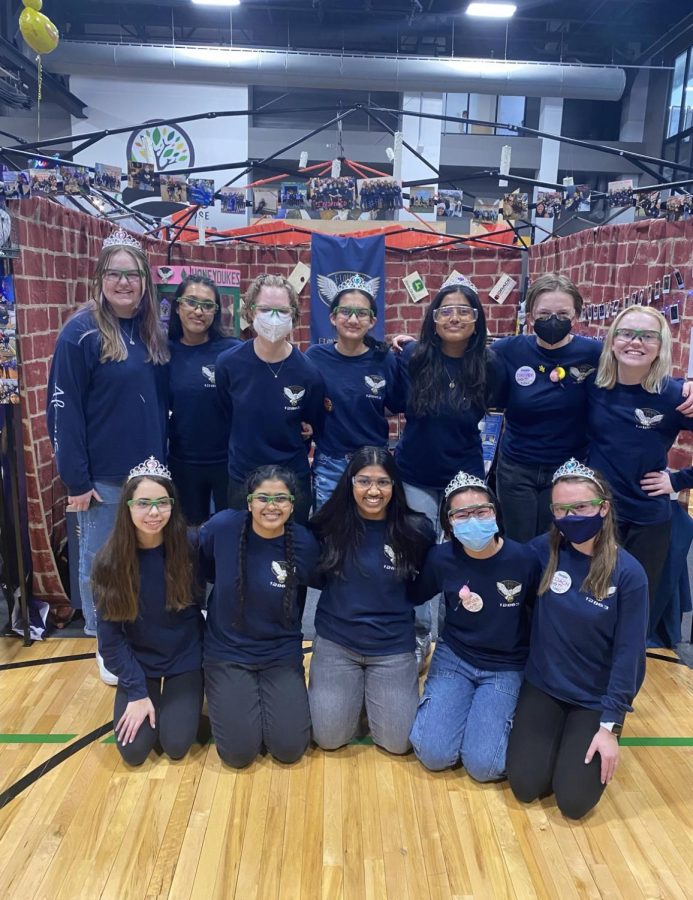Misogyny is everywhere. It lurks around like a disease, polluting every classroom, hallway, street and facet of society. But unlike a tangible object that everyone can see, the concept of misogyny remains inconspicuous, hiding behind a wall of ignorance and inaction.
Misogyny has become so normalized in this country’s culture that people now struggle to fully recognize and understand the danger of its prevalence. 92% of murdered women knew their killer. 86% of women between the ages of 18 and 24 experienced sexual harassment at some point in their young lives.
From this toxic culture, numerous misogynistic and anti-women groups thrive under society’s nose.
Incels—involuntary celibates—are men who aren’t having sex and blame women for their lack of sexual prowess. They believe that women owe men sex, further suggesting that women should be kept as sex slaves and stripped of their rights. Men have already absorbed these beliefs and acted on them—Elliot Rodger and Alek Minassian both committed massacres of women in the name of this movement.
Another toxic culture is the pickup artist industry, a global force that offers no transparency, oversight or regulation. Men pay exorbitant amounts of money to attend a boot camp where they are trained in techniques to sexually harass and assault women. Men from this industry have boasted about committing rape and advocated for its legalization.
Untold statistics are that an average of three women per day are killed by an intimate partner in the United States and 15% of American women have been raped.It’s not all men that are committing these acts, but it is the broad culture of indifference that’s the silent killer.
When society excuses, condones and ignores men who are misogynistic, it accustoms people to violence and hatred against women. “Misogynistic comments and behavior are often passed off as jokes,” senior Khushi Mehta said. “It’s become so normalized that people tend to think it is unnecessary to speak up or confront someone in fear of making things uncomfortable. This seems to especially run true in high school social environments.”
As Mehta noted, it doesn’t have to be an act of violence that highlights misogyny in American culture. Even within the walls of PV, misogyny runs rampant.
Senior Aarya Joshi is a member of the only all-girls robotics team in the Quad Cities. Throughout their competition season, the team worked to connect and build relationships with one another. In doing so, they were able to cultivate a safe and comfortable academic and social environment. “Women in robotics is important because robotics and STEM in general have continuously shown that tough problems can only be solved with integrative and diverse solutions. And ultimately, women bring diversity,” Joshi said. “They bring important skill sets and different viewpoints that foster innovation and improvement.”
And Joshi’s team has incredible results. The team placed first at the Super Qualifier and advanced to the state competition; however, what should have been a happy memory is now forever stained by misogyny.
“After placing first, a boy on another team claimed that we ‘whored’ our way to state,” Joshi recounted. “I felt very proud of our accomplishments as a team this season, but comments like this always make me wonder if I actually deserve anything I worked for.”
A common belief is that if a man isn’t contributing to the problem, he is not a part of the problem, but this is an outstandingly wrong misconception.
“It’s super important for men to speak up even if they aren’t the problem. When a man confronts misogyny, more people are likely to be persuaded by it; that’s the unfortunate truth of it,” Joshi concluded. “We are no longer living in the 1950’s. If you hear a sexist comment, you should act on it without fear getting in your way. Otherwise, you are contributing to the problem.”
Men need to police each other and hold each other accountable. It is far too common for men to get away with catcalling and harassment and abuse because their friends stay silent.
But, as senior Gretchen Highberger noted, silence is violence, acceptance is unacceptable and endurance is compliance.
“It is often hard for women to stand up for themselves because often that just perpetuates the behavior by giving men exactly what they want: a reaction,” she said. “Women are caught in a situation where they feel uncomfortable and attacked, but fear that any acknowledgement of the comments at all will only invite more harassment in the future. This makes it crucial that men call out other men for their behavior instead of ignoring it. By ignoring it, they give silent approval.”
It is the fear of entering a male-dominated career field. The fear of entering a public space without the safety of being in a large group. The fear of being alone in a room with a man. The fear that a catcall can escalate into something worse. The fear of going for a night run or obstructing your senses by listening to music. The fear of going on a date and never returning home.
It will take the unification and education of society to stop this trend. There needs to be training and support for teachers in recognising misogyny. Parents need to feel empowered to have important conversations with their children. Peers need to respect each other for their knowledge and personality, not for their gender.
And society needs to act before it’s too late.










Anonymous • Sep 18, 2023 at 12:17 pm
YAAAAAS QUEEN! You go, girls! Slay, Slay, Slay!